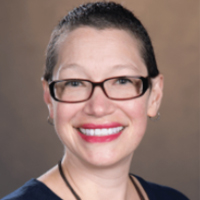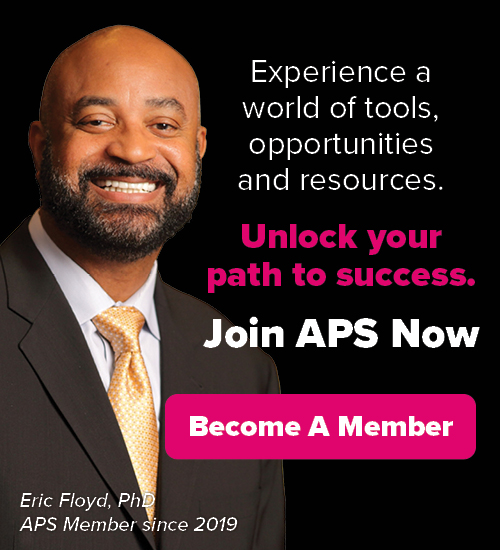- Membership & Community
-
Publications & News
- Physiology Journals
-
Newsroom
-
The Physiologist Magazine
- 2019
- 2020
- 2021
- 2022
- 2023
- 2024
-
In Depth
- In Depth—The Bear Necessities
- In Depth: Understanding Circadian Rhythms
- In Depth: Understanding Data
- In Depth: Exercise Physiology: Take Your Medicine at the Gym
- In Depth: Neurodegenerative Disorders
- Imaging Methods Unveil the Invisible
- Rewiring the Brain: Breakthroughs in Neural Therapy
- What’s Coming Next for GLP-1 and Metabolic Disease Treatment
- Understanding the Effects of Maternal Exercise
- How Muscles May Hold Cues to Better Sleep
- The Science Behind Breathwork and Mental Health
- How Science is Reframing Aging and Disease
-
Mentoring Forum
- Net Worth
- Take Care
- You … In Charge
- Work. It. Out.
- Working Off-site
- Location, Location, Location?
- Student Support
- Progressing to Postdoc
- Relationship Building
- Let’s Get It Started
- What Do We Value?
- It’s a Postdoc Life
- Coronavirus Contributions
- Creative Communications
- Selection Process
- Conference Connections
- Postdoc Appreciation
- Research Rewards
- Focus on Teaching
- Industry Insights
- Balance Beam
- Post Postdoc
- If You Build It
- Talk It Through
- Forward Bound
- I’ve Earned My PhD. Now What?
- University Life
- Tips for Trainees
- Time Travel
- Prepare Now for the Career You Want
- Landing a Postdoctoral Researcher Position
- Becoming a Physician-Scientist
- Mastering the Art of Science Communication
- Setting Yourself Up for Success in the Lab
- From Postdoc to Professor: Key Strategies for Success
- How to Stay Motivated in Challenging Times
- Staying Motivated Throughout Your Science Career
- Managing Stress and Workload During Your PhD
- Stay Passionate About Your Physiology Career
- Advice for Science Trainees in Uncertain Times
-
Policy IQ
- Policy IQ—2023 in Review: How APS Advocated on Behalf of Physiologists
- Policy IQ—Supporting Equitable Research
- NIH's Road Map to a Better Postdoc Experience
- The Career Path to Science Advocacy
- Culture of Safety: Stopping Sexual Misconduct
- Physiologists Return to Capitol Hill
- Tips for Scientists to Communicate about Animal Research
- Science Advocacy in a New Political Landscape
- Tips for Making the Call to Congress
- Science Spending Is an Investment
- Advocacy Up Close and Personal
- How Animal Research Advances Physiology and Medicine
- 5 Ways Physiologists Advocated for Science in a Challenging Year
-
Publish with Polish
- Publish with Polish
- The Layers of Open Science
- Take Your Content From Meeting to Manuscript
- APS Journals to Highlight Women’s Health Research
- What Subscribe to Open Means for APS Members
- The 5 Pillars of Publish with Purpose
- 3 Types of Metadata Researchers Should Know About
- Navigating Open Access and New Licensing Options
- Journal Manuscript Prep Made Easy
- How to Navigate Public Access Requirements
- Ensuring Public Trust in Publishing
- Improve Your Scientific Figures With APS and BioRender
- How APS Subscribe to Open Supports Accessible Research
-
Under the Microscope
- Equine Inspiration
- Inquiring Minds
- The Power of Teaching
- The Love of Physiology
- Understanding Women's Physiology Across the Lifespan
- Studying Human Health in Extreme Environments
- Advancing Kidney Health and Physiology Research
- How Gut Microbes Shape Blood Pressure and Drug Response
- Battling Malaria
- Exploring the Microbiome
- From Physics to Physiology: A Scientist's Unconventional Journey
- Finding Meaning in Exercise Physiology and Healthy Aging
- Mentoring Q&A
- Evolution
- Baseline by Scott Steen, CAE, FASAE
- 2025
- 2026
- Find Us on Social Media
-
The Physiologist Magazine
-
Professional Development
-
Meetings & Events
-
American Physiology Summit
- #APS2024 Overview
- Abstracts
- Awards at the Summit
- Award Lectures
- Career Networking Lunch Form
- Dates and Deadlines
- Advocate for Health Research Funding
- Hotel Information
- International Travel Information for Summit Attendees
- Industry Partners
- Mobile App
- NIH and NSF Program Officer Panel Discussion Form
- Physical Poster Information
- American Physiology Summit PhysioHub
- Pre-Summit Events
- Registration
- Section & Group Banquet Tickets
- Social Events
- Speaker Audiovisual Instructions
- Summit FAQs
- Travel & Transportation
- Undergraduate Program Book
- Liability Waiver
- Industry Partners
- Joseph Erlanger: Pioneering Nerve Research and APS Leadership
- 2023
- 2024
- Scientific Integrity Policy
- Exhibitor Registration Form
- Keynote Speaker Tracy L. Bale, PhD
- Keynote Speaker Jennifer Lippincott-Schwartz, PhD
- Career Day Workshop: Own Your Path, Positioning for the Career That Fits You
- From Concept to Classroom
- New Trends in Sex Differences and Women’s Health Research
- Control of Renal Function in Health and Disease
- Comparative Physiology Conference
- Webinars
- Future APS Conferences
- Conference Policies
-
American Physiology Summit
- APS Awards
-
Career & Professional Development
-
Career Gateway
-
Resources
- Transcript—Leading Through Conflict and Difficult Conversations
- Transcript—Managing Conflict with Colleagues
- Transcript—Leading a Team Through Conflict
- Transcript—Providing Difficult Feedback
- Transcript—Team Dynamics and Culture Primer
- Transcript—Building a Team
- Transcript—Leading a Team Assigned to You
- Transcript—Creating a Team Culture
-
Resources
- Career Navigator
- Center for Physiology Education
- Virtual Courses
- Physiology Job Board
- APS Graduate Physiology & Biomedical Science Catalog
-
Career Gateway
-
Meetings & Events
-
Advocacy & Resources
- Science Policy
-
Resources
- Researcher Resources
- Educator Resources
- Trainee Resources
- Student Resources
-
APS Graduate Physiology & Biomedical Science Catalog
- Des Moines University
- George Washington University
- Michigan State University
- New York Medical College
- Nova Southeastern University
- Pennsylvania State University
- Texas A&M University
- Texas A&M University Medical Physiology
- Stony Brook University
- University of Alabama at Birmingham
- University at Buffalo
- University of Colorado
- University of Michigan
- University of Minnesota
- University of Missouri-Biomedical Sciences
- University of Nebraska Medical Center
- University of Nevada, Reno
- University of South Carolina School of Medicine
- University of Tennessee Health Science Center (UTHSC)
- University of Texas Health Science Center
- Virginia Commonwealth University
- Wayne State University
- Physiology Department Catalog Submission Form
- Boston University
- Career Gateway
- Major Initiatives
- About APS
APS Members: Watch On-demand
This event will focus on ways to create an inclusive lab and work environment at all educational levels. We will discuss the steps for promoting an inclusive lab and work environment through recruitment, selection and retention.
The goals of the webinar include answering the following questions:
- How do we facilitate inclusiveness as an educator, mentor or manager?
- What are the skills needed for inclusivity in research or education?
- How important are the emotional connections in inclusivity?
Moderator
 Anna K. Leal, PhD, is an assistant professor of biology at Centenary College of Louisiana in Shreveport. Leal earned a PhD in biomedical engineering from the University of Texas Southwestern Medical Center in Dallas and completed a postdoctoral fellowship at the Heart & Vascular Institute at the Pennsylvania State University College of Medicine. She has taught undergraduate courses including anatomy and physiology and exercise physiology. Leal’s research focuses on gender differences concerning physical activity in elementary school students. One of her goals is to increase and promote diversity in biology education. She is a member of the APS Diversity, Equity & Inclusion (DEI) Committee.
Anna K. Leal, PhD, is an assistant professor of biology at Centenary College of Louisiana in Shreveport. Leal earned a PhD in biomedical engineering from the University of Texas Southwestern Medical Center in Dallas and completed a postdoctoral fellowship at the Heart & Vascular Institute at the Pennsylvania State University College of Medicine. She has taught undergraduate courses including anatomy and physiology and exercise physiology. Leal’s research focuses on gender differences concerning physical activity in elementary school students. One of her goals is to increase and promote diversity in biology education. She is a member of the APS Diversity, Equity & Inclusion (DEI) Committee.
Panelists
 Carmen Hinojosa-Laborde, PhD, is a research physiologist for the Tactical Combat Casualty Care Research Unit for the U.S Army Institute of Surgical Research in San Antonio. She earned her PhD in pharmacology at UT Health San Antonio. Hinojosa-Laborde trained as an integrative physiologist during her postdoctoral fellowship. Her current research as a military scientist focuses on increasing survival of combat casualties on the battlefield and the effects of analgesics on the compensatory responses to hemorrhage.
Carmen Hinojosa-Laborde, PhD, is a research physiologist for the Tactical Combat Casualty Care Research Unit for the U.S Army Institute of Surgical Research in San Antonio. She earned her PhD in pharmacology at UT Health San Antonio. Hinojosa-Laborde trained as an integrative physiologist during her postdoctoral fellowship. Her current research as a military scientist focuses on increasing survival of combat casualties on the battlefield and the effects of analgesics on the compensatory responses to hemorrhage.
 Adrienne Amador Oddi, MS, is a dean of admissions and financial aid at Trinity College in Hartford, Connecticut. She brings both breadth and depth to her role at Trinity, is widely regarded as an ethical leader with a deep passion advocating for students and is known for her work in creating more diverse and inclusive college communities. Oddi earned a bachelor’s degree in mathematics from Kenyon College in Gambier, Ohio, and a master’s degree in educational measurement and statistics from The Ohio State University. The daughter of a Filipino immigrant and a first-generation college student, Oddi believes in the power of education to effect positive change.
Adrienne Amador Oddi, MS, is a dean of admissions and financial aid at Trinity College in Hartford, Connecticut. She brings both breadth and depth to her role at Trinity, is widely regarded as an ethical leader with a deep passion advocating for students and is known for her work in creating more diverse and inclusive college communities. Oddi earned a bachelor’s degree in mathematics from Kenyon College in Gambier, Ohio, and a master’s degree in educational measurement and statistics from The Ohio State University. The daughter of a Filipino immigrant and a first-generation college student, Oddi believes in the power of education to effect positive change.
 Carlos Aizenman, PhD, was born and raised in Mexico City. His interest in neuroscience began as an undergraduate at Brown University in Providence, Rhode Island, where he worked in visual cortical synaptic plasticity in the laboratory of Mark Bear, PhD. As a PhD student at Johns Hopkins University in Baltimore, Aizenman studied plasticity of inhibitory inputs and of intrinsic excitability of deep-cerebellar nuclear neurons. During his postdoctoral research, he combined his interest in the visual system with his interest in the regulation of neural excitability, and continues that work today. Aizenman’s lab focuses on the optic tectum of Xenopus laevis tadpoles.
Carlos Aizenman, PhD, was born and raised in Mexico City. His interest in neuroscience began as an undergraduate at Brown University in Providence, Rhode Island, where he worked in visual cortical synaptic plasticity in the laboratory of Mark Bear, PhD. As a PhD student at Johns Hopkins University in Baltimore, Aizenman studied plasticity of inhibitory inputs and of intrinsic excitability of deep-cerebellar nuclear neurons. During his postdoctoral research, he combined his interest in the visual system with his interest in the regulation of neural excitability, and continues that work today. Aizenman’s lab focuses on the optic tectum of Xenopus laevis tadpoles.


